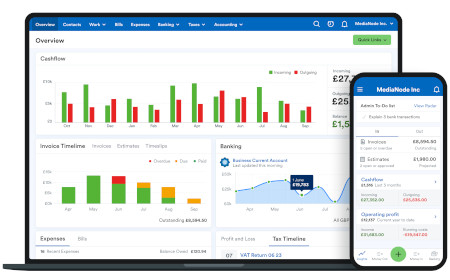On this page
Coping with business disruption
What could you do to make your business more resilient to change? Our toolkit helps you understand resilience and how it works for you and your business.
Inspiration from Ulster Bank
Be the first to know! Sign up to video podcasts and newsletters as they’re published.
Accounting software included
FreeAgent's accounting software is used by over 150,000 small businesses to monitor cash flow, fire off invoices and record expenses.
You can get FreeAgent for free, as long as you retain your Ulster Bank business current account. Optional add-ons may be chargable.
Fee free banking. Charges for unarranged borrowing, Bankline, international payments and any additional services are not part of the free banking offer. At the end of your 2 year free banking period, you’ll start to incur fees for your everyday transactions. We reserve the right to change or withdraw the start up offer without prior notice.



